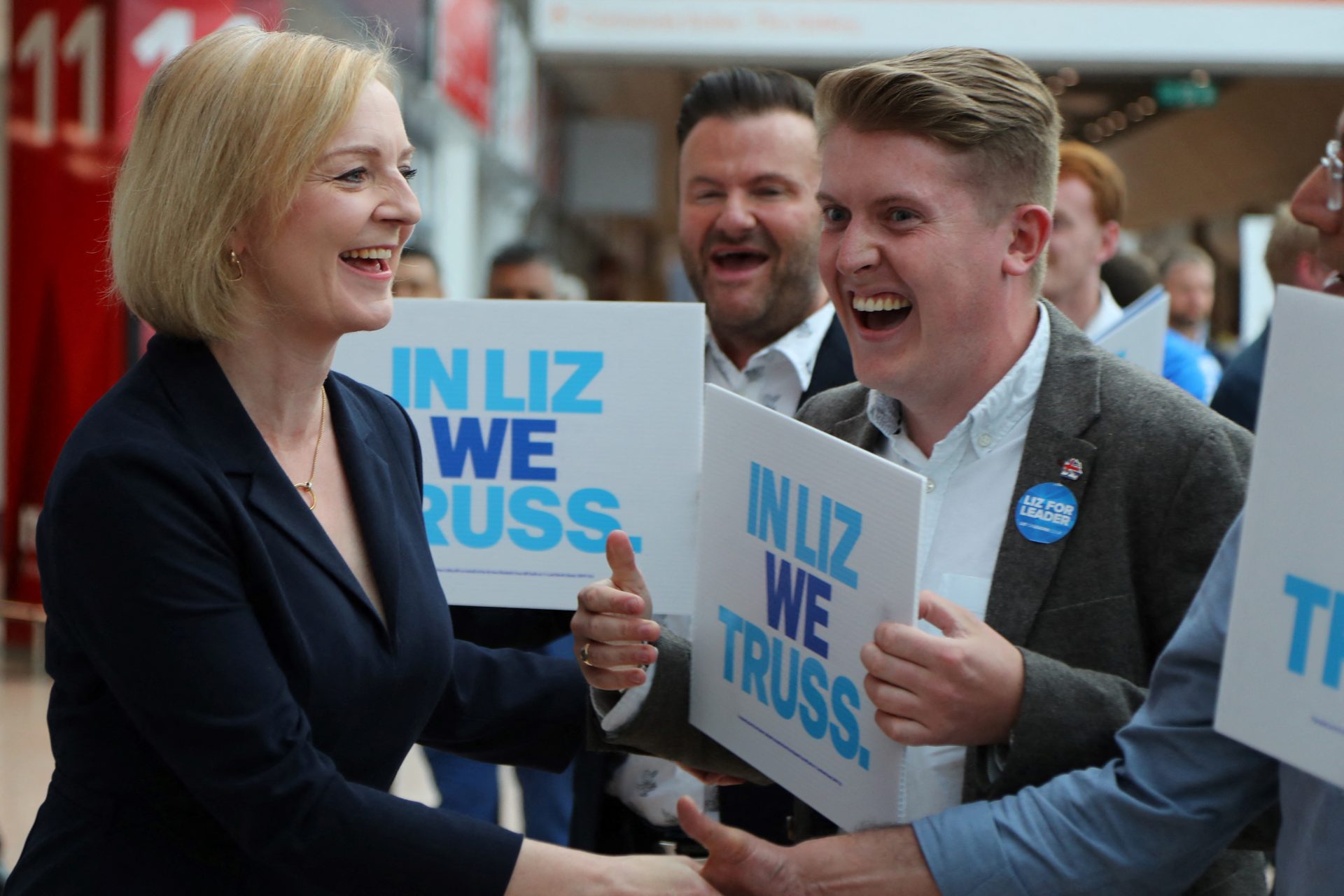The mini-budget has not been a success. The pound has plummeted, the cost of borrowing has shot up, a former US treasury secretary described Britain as a “submerging market,” the IMF has issued an unprecedented dressing-down to the chancellor Kwasi Kwarteng and the Bank of England has had to introduce an emergency unlimited bond-buying programme to save Britain’s pension system from collapse. Bloomberg has estimated that the cost to financial markets of the Truss-Kwarteng “mini-budget” has been in the order of £500bn. Markets are spooked, the Labour Party is now 17 points ahead in the polls and everyone, it seems, is up in arms. Well – almost everyone.
“You really think this is about tax cuts?” wrote Daniel Hannan, the Conservative peer, on the Conservative Home website. “What we have seen since Friday,” continued Hannan, a history student and former Telegraph leader writer, is “a market adjustment to the increased probability that Sir Keir Starmer will win in 2024 or 2025 – leading to higher taxes, higher spending, and a weaker economy.”
It’s a remarkable argument, especially as it was a Conservative government that borrowed £323 billion in a single year, a peacetime record, which it did to offset the economic slump caused by Covid. Markets didn’t go into a panic over that. Sterling didn’t collapse. Hannan also overlooks the fact that Boris Johnson spent much of his final year trailing Starmer in the polls by double digits – and yet the markets didn’t seem worried about that either.
But this ironclad determination to avoid looking facts in the face is not confined to Hannan. Patrick Minford, the economist and former adviser to Margaret Thatcher, has also defended the “mini-budget”, in a searing column for the Daily Mail. “All in all, the package represents an excellent first step towards a new era of free trade, deregulation and tax reform,” wrote Minford. “Not that you’d know it from the wailing noises coming out of Britain’s economic establishment, or much of it, at least.”
The trouble with this argument is that the “economic establishment,” which Minford criticises includes not only the Bank of England, but the entire global capital market.
The market has made its view of the “mini-budget” very clear. The Bank of England’s position is somewhat trickier. While the government has cut taxes and removed the bankers’ bonus cap in the hope of heating up the economy, the Bank of England is raising rates in order to cool it. In this, it is only doing its job, which is to keep inflation down to below two per cent. This means the government is turning up the nation’s economic thermostat at the same time as the bank is trying to turn it down.
But these policy contradictions do not seem to worry people such as the hedge fund manager Crispin Odey. He is a vigorous supporter of the Conservative Party and also of Brexit. Odey’s hedge fund spawned Jacob Rees-Mogg’s own financial operation. Kwasi Kwarteng is a former employee of Odey Asset Management.
The Telegraph has reported Odey’s view that “the historic rout in the wake of Kwasi Kwarteng’s tax cuts was triggered by Remainers in the City who ‘hate’ the Government”. The currency markets, according to Odey, are an anti-Brexit conspiracy – an argument that is somewhat clouded by Odey’s admission that he himself also bet against the pound and made a killing. There is no hint that Odey sees these things as contradictory.
This confused, ideologically charged way of thinking captures perfectly Britain’s entry into a new political and economic twilight zone. A fringe, ultra-liberal economic philosophy, which for years was regarded as too radical to be taken seriously, now dominates government policy. The free market idea that low taxes plus small state equals economic growth is the result of the slow filtration of Reagan-Thatcher economics down through the years, arriving at the present day in a new, highly concentrated form.
What this new ideology fails to grasp is that financial reforms of the Thatcher period, certainly the “Big Bang” deregulation of the city in 1986, can only be enacted once. And just because they led to a boom in finance back then, it doesn’t follow that it will lead to a boom now. The circumstances of our time are incomparably different to the early 1980s – just how different is shown by the market reaction to Kwarteng’s removal of the cap on bankers’ pay. They hated it. The very beneficiaries of his policy didn’t like it.
Despite this, the notion persists that 1980s policies will set off a 2020s boom. “Horrified by the prospect of an independent, low-tax, dynamic UK meeting with long-term economic success, Remainiacs and their friends in the EU, IMF, etc. are trying to bounce the gov into returning to failed EU-style economic policy.” That’s the Twitter verdict of the Bruges Group, the right-wing, Euroscaptic think tank. Its conclusion: “Truss and Kwarteng must stay the course.”
It is remarkable that the government has managed to create a full-scale economic panic in such quick time, and even more remarkable that so many of its supporters seem so unfazed. Some of them even seem quite pleased. Truss and Kwarteng both have a reputation for stubbornness. Perhaps, as the Bruges Group advises, they will stay the course.
If they do, and if they are incapable of reversing course, and if borrowing costs continue to rise, and if interest rates go up even higher, and if more banks withdraw their mortgages, and if the housing market begins to wobble – if this crisis continues to its logical end, then this government will be finished by Christmas. But on this showing, even that wouldn’t be enough to convince the hardcore free-marketeers that they were wrong.











